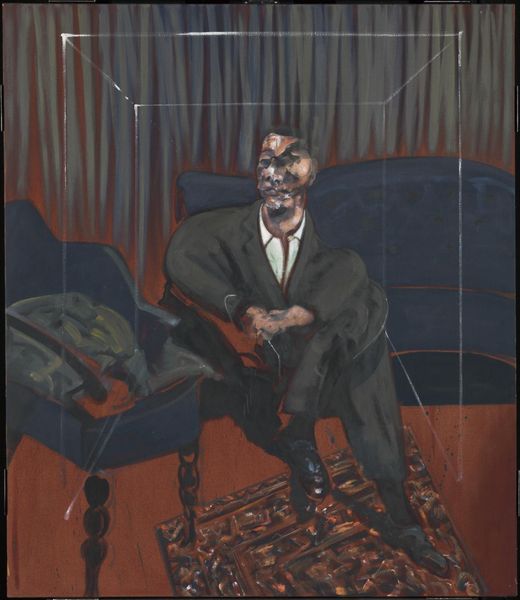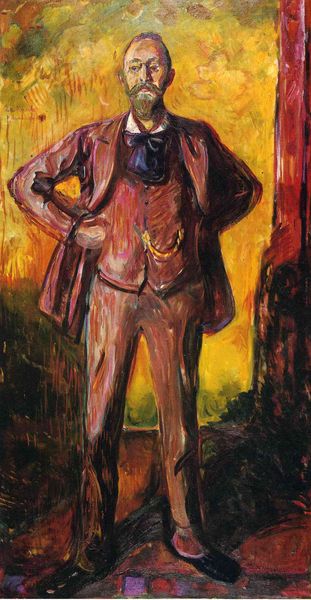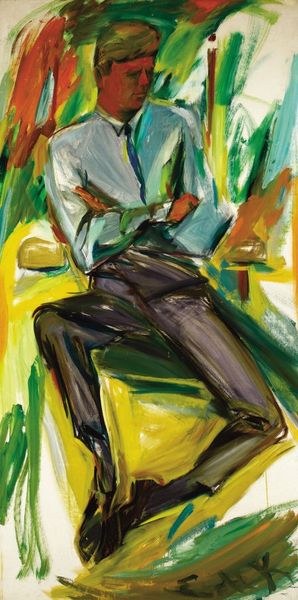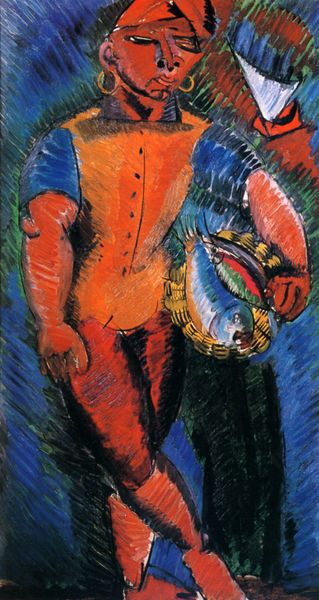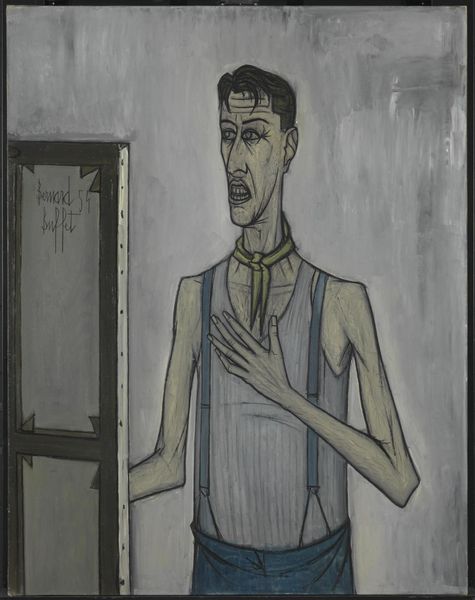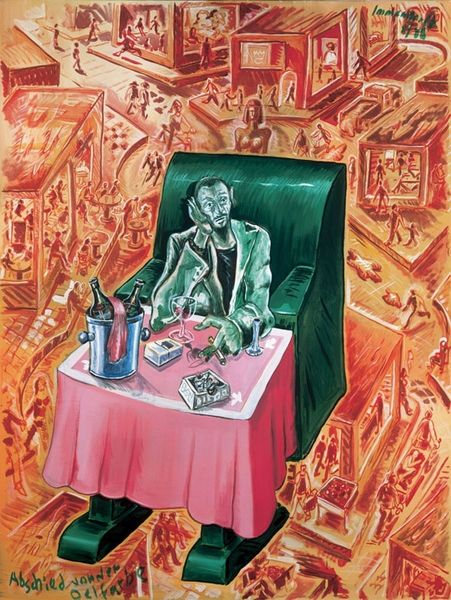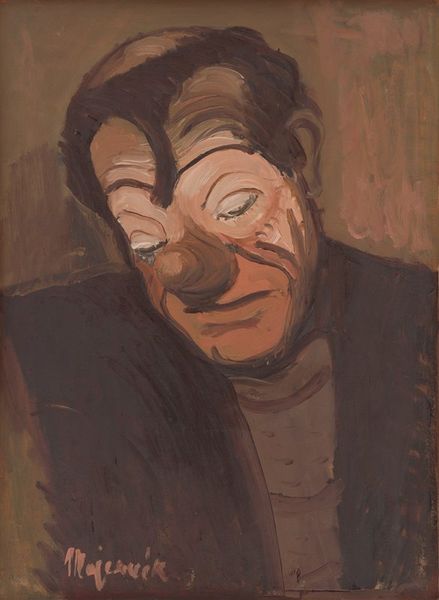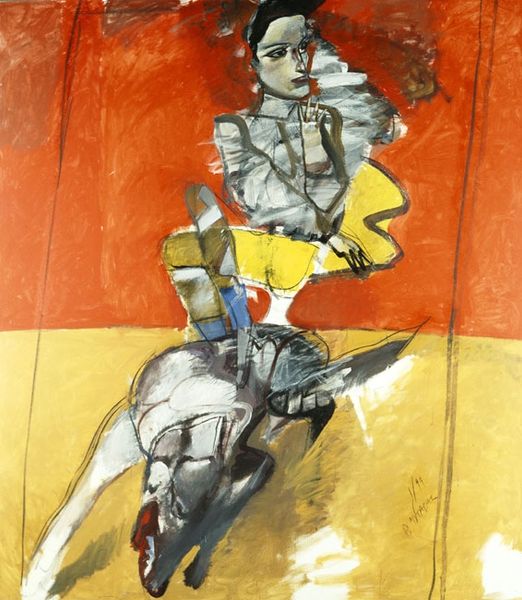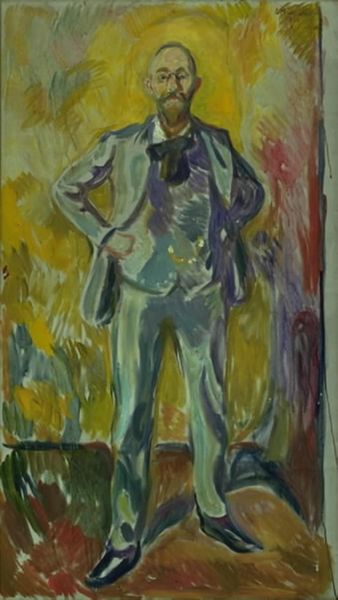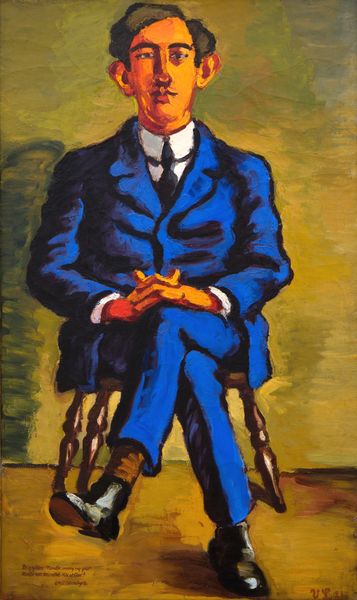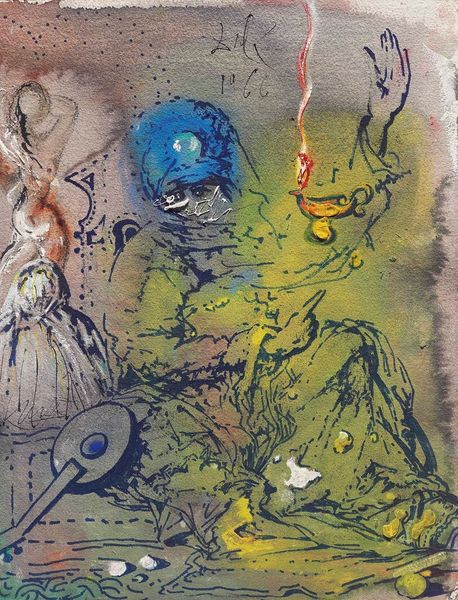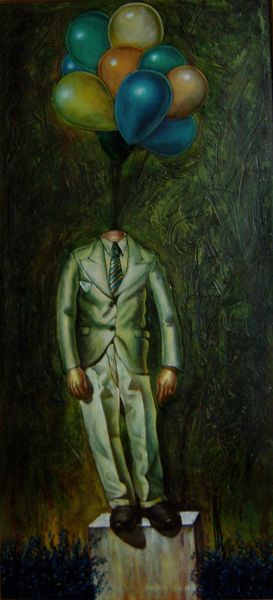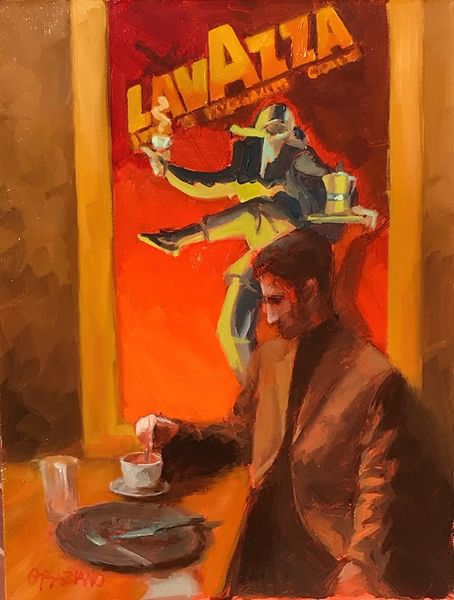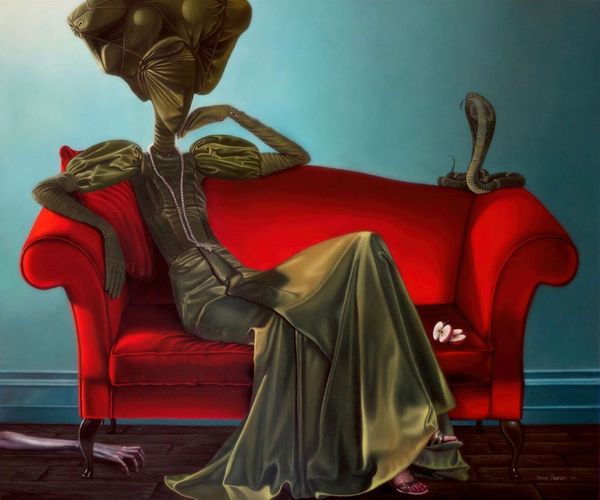
Copyright: Zeng Fanzhi,Fair Use
Curator: Welcome. Before us is Zeng Fanzhi's "Man in Melancholy," completed in 1990. It's an oil-on-canvas portrait that firmly situates itself within the neo-expressionist movement, echoing themes of urban isolation and internal angst so prominent during that time. Editor: My initial reaction is a strong sense of unease. The exaggerated features, the almost lurid color palette… it's as if we’ve stumbled upon a moment of raw, unfiltered vulnerability. There’s a compelling ugliness here that really grabs you. Curator: Zeng was working in Wuhan during a period of rapid socio-economic changes in China, which deeply affected his art. We need to understand that shift to interpret this work correctly. The loose brushstrokes, almost violently applied, reveal the emotional state of the figure and, arguably, a whole generation. Editor: Absolutely, and I see it going beyond mere unease. It’s about disenfranchisement and alienation, the anxieties simmering beneath the surface of societal transformation. His heavy brushstrokes aren't just stylistic; they embody a feeling of disquiet, don't you think? The fact he paints the subject wearing western clothes points to this alienation too. Curator: That reading aligns well with the broader discourse surrounding the Tiananmen Square protests and the resulting atmosphere of disillusionment, although this predates the tragic events of 1989. Zeng's work provided a window into these experiences. It reflects feelings of instability, confusion, and also possibly some level of resentment about what these economic shifts meant for culture at large. Editor: Right. It is powerful how Zeng distills personal turmoil into a visual language that speaks to larger social issues. He uses the conventions of portraiture, and expressionistic techniques, but does so to interrogate these rapid shifts taking place within Chinese identity, no? Curator: Precisely. It’s not just about documenting sadness; it is an indictment of systems that generate these emotions in the first place. The institutional policies had tangible effects, that manifested here on the canvas. Editor: Exactly! It prompts us to consider the ethics and power structures inherent to even something that seems individualized, like "melancholy". Ultimately it speaks volumes of how trauma gets embedded in both the individual psyche and collective identity. Curator: A nuanced point that allows a new appreciation of Fanzhi´s work. Thank you for offering it. Editor: Thank you. It has been a revealing dive.
Comments
No comments
Be the first to comment and join the conversation on the ultimate creative platform.
